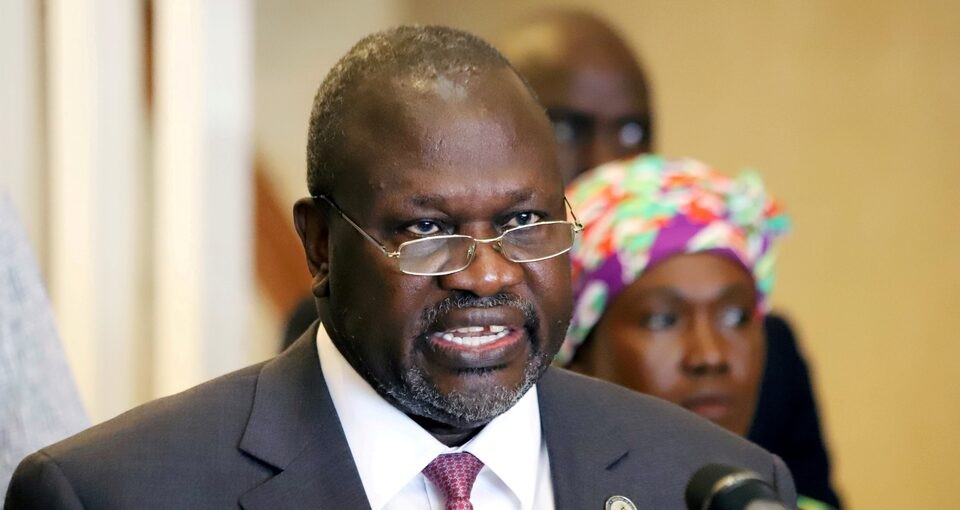South Sudan’s First Vice President Riek Machar has been suspended and charged with treason, crimes against humanity and murder over his alleged ties to the White Army, an ethnic Nuer militia blamed for a deadly attack in Upper Nile state.
President Salva Kiir issued a decree late Thursday night, read on state broadcaster South Sudan Broadcasting Corporation (SSBC), announcing the suspension of Machar and Petroleum Minister Puot Kang Chuol pending trial.
“Pursuant to the provisions of Article 101(D) of the Transitional Constitution of the Republic of South Sudan 2011 as amended, read together with Section 38 (1) of the Interpretation of Laws and General Provisions Act 2006, I, Salva Kiir, President of the Republic of South Sudan, do hereby suspend two senior government officials from their respective positions pending court trials,” the order stated.
Earlier in the day, Justice Minister Joseph Geng Akech charged Machar and seven allies with murder, treason and crimes against humanity in connection with a March attack on a military base in Nassir, Upper Nile state, that left more than 250 soldiers dead.
The government alleges the attack was carried out by the White Army under Machar’s direction. Machar, who also leads the opposition SPLM-IO party, has been under house arrest since March 26 in what many observers see as part of a long-standing power struggle with Kiir.
“These crimes were marked by gross violations of the Geneva Conventions and international humanitarian law, including the desecration of corpses, persecution of civilians and attacks on humanitarian workers,” Akech said, according to a readout provided to reporters in Juba.
Speaking to Radio Tamazuj, legal expert Peter Adau Akol Thon said the charges fall within the court’s jurisdiction.
“An accused is innocent until proven guilty,” Thon said. “In this scenario, it is premature to say whether these sections are correct or not. Upon them being tried in court and if they are acquitted, we shall know whether these charges — treason, overthrowing the government, authoritarianism — are correct or not. But before they have been acquitted, we presume that they stand charged for those crimes.”
He emphasized that it is up to the High Court to determine the validity of the charges.
“They are not yet convicted, and we are not sure whether these charges are correct within the law or not. It is upon the conviction or acquittal by the High Court later on. So, for me, I cannot say the sections are wrong, or not correct, or they are correct — until the trial court decides otherwise,” he added.
Thon also said the prosecution must present substantial evidence to justify proceeding with the case.
Regarding the suspension order, Thon argued it was legally justified, noting that constitutional office holders must have their immunity removed before facing trial.
“Because the law under Article 101 of the Constitution, together with Section 38 of the Interpretation Law, gives the president power to issue that order,” he said. “Any government official who is an executive member, who is indicted by the court, cannot just be taken to court without removing the immunity. They are immune.”
“So, unless the appointing authority — the president — waives the immunity, they cannot stand trial. In that case, the president has a right to suspend them so they can stand trial. Otherwise, without suspending them, they are still immune,” he added.
Although the presidential order cites the president’s constitutional powers, other legal experts and opposition officials have questioned its validity. The 2018 peace agreement — signed by Kiir and Machar to end years of civil conflict — does not grant the president authority to remove or suspend the First Vice President. Instead, it protects the first vice president’s tenure for the duration of the transitional period unless there is a clearly defined vacancy, in which case a structured replacement process must be followed.




